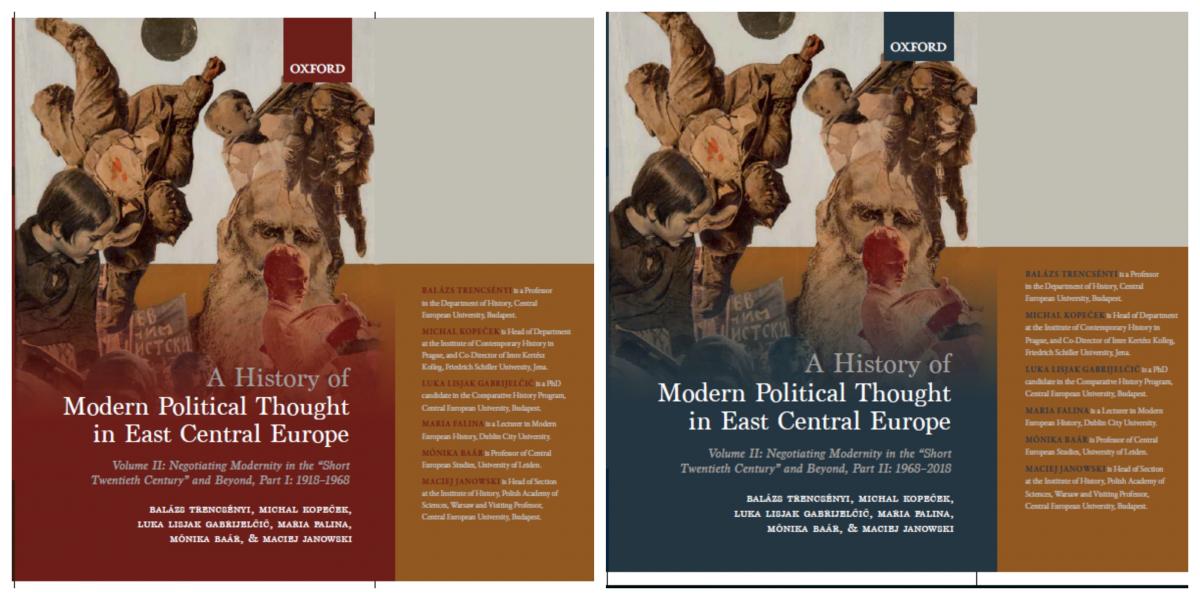Book launch: A History of Modern Political Thought in Central and Eastern Europe
The Institute for Advanced Study and the CEU Department of History cordially invite you to the discussion and launch of the second volume of
A History of Modern Political Thought in Central and Eastern Europe (Oxford University Pess, 2018)
with authors Mónika Baár (Leiden University), Michal Kopeček (Czech Academy of Sciences / Imre Kertész Kolleg Jena), and Balázs Trencsényi (CEU)
and invited discussants Michael Freeden (University of Oxford) and Ádám Takács (ELTE Budapest).
Introduction by Nadia Al-Bagdadi (CEU - IAS).
Balázs Trencsényi, Michal Kopeček, Luka Lisjak Gabrijelčič, Maria Falina, Mónika Baár, and Maciej Janowski:
A History of Modern Political Thought in East Central Europe, Volume II: Negotiating Modernity in the 'Short Twentieth Century' and Beyond
Part I: 1918-1968
Part II: 1968-2018
Resulting from an ERC grant, A History of Modern Political Thought in East Central Europe is a synthetic work, authored by an international team of researchers, covering twenty national cultures and 250 years. It goes beyond the conventional nation-centered narratives and presents a novel vision especially sensitive to the cross-cultural entanglement of political ideas and discourses. Its principal aim is to make these cultures available for the global “market of ideas” and revisit some of the basic assumptions about the history of modern political thought, and modernity as such.
Volume II begins with the end of the Great War, depicting the colorful intellectual landscape of the interwar period and the increasing political and ideological radicalization culminating in the Second World War. Taking the war experience both as a breaking point but in many ways also a transmitter of previous intellectual traditions, it maps the intellectual paradigms and debates of the immediate postwar years, marked by a negotiation between the democratic and communist agendas, as well as the subsequent processes of political and cultural Stalinization. Subsequently, the post-Stalinist period is analyzed with a special focus on the various attempts of de-Stalinization and the rise of revisionist Marxism and other critical projects culminating in the carnivalesque but also extremely dramatic year of 1968. The starting point of Part II is the defeat of the vision of “socialism with a human face” in 1968 and the political discourses produced by the various “consolidation” or “normalization” regimes. It continues with mapping the exile communities’ and domestic dissidents’ critical engagement with the local democratic and anti-democratic traditions as well as with global trends. Rather than achieving the coveted “end of history”, however, the liberal democratic order created in East Central Europe after 1989 became increasingly contested from left and right alike. Thus, instead of a comfortable conclusion pointing to the European integration of most of these countries, the book closes with a reflection on the fragility of liberal democracy in this part of the world and beyond.
Reception to follow

